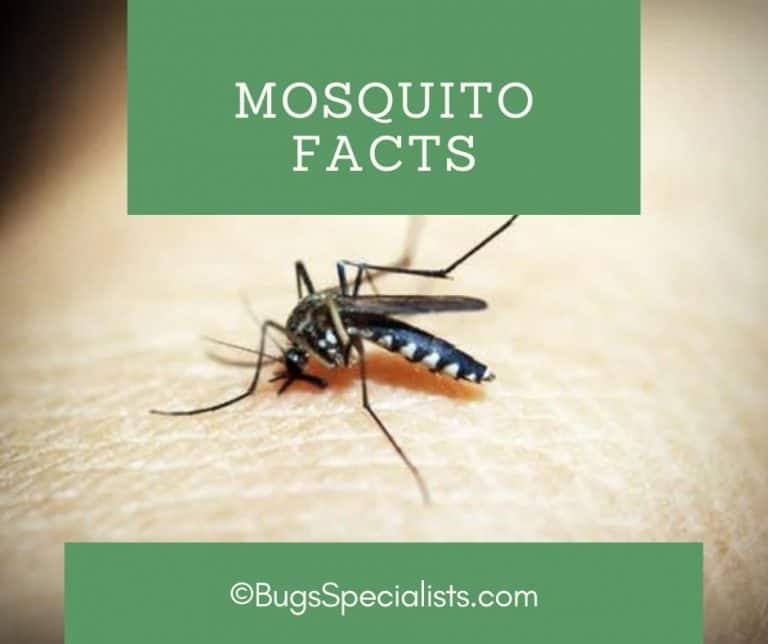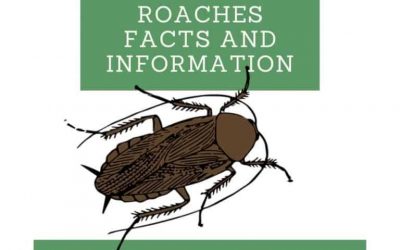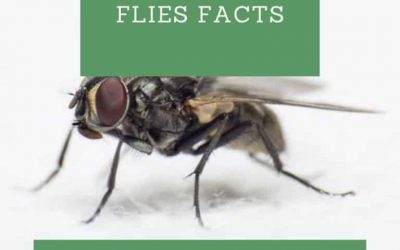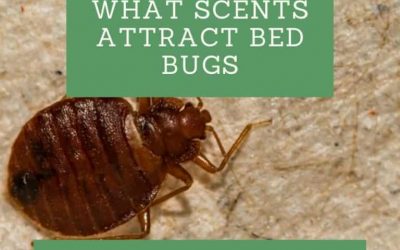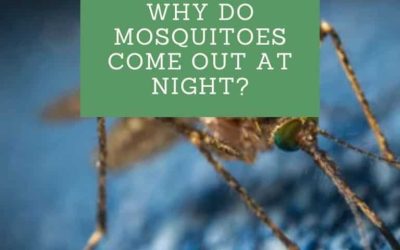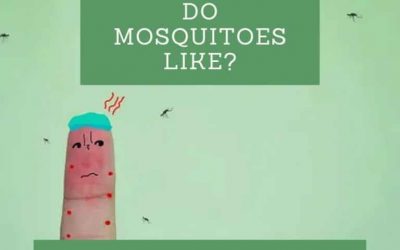However good a soul you have, you can never bring yourself to love mosquitoes. In fact, the world health organization considers them the number one cause of human suffering.
If there was a way to eradicate these insects from existence completely, I am pretty sure millions of people will make it their life’s mission.
That won’t happen anytime soon because there are so many mosquito species across the globe, about 3000 of them. They live for about six to seven days, but they multiply into millions if not thousands with good breeding grounds.
However, that’s not all about mosquitos, they may be dreaded, but they also have fascinating facts. We discuss some of them to understand why so many people are disturbed even by mentioning mosquitoes.
11 Mosquito Facts you didn’t know
<https://www.youtube.com/watch?v=_3OdUHxh3I0
Mosquitoes have been in existence longer than dinosaurs
Evidence suggests that mosquitos have existed for over 210 million years, while dinosaurs only became extinct 65 million years ago.
Over the years, they have evolved to become some of the deadliest insects on planet earth.
Female mosquitoes are the only ones that bite
Of all the mosquitoes that bite, only the female ones bite because the blood from humans and other animals provide the perfect combination of nutrients necessary to develop their eggs.
Related reading Why are some mosquito bites worse than others
Mosquitoes are greedy
It may shock you that mosquitoes can suck blood equivalent to thrice their body weight. It is like a man weighs 100 Kgs and forges ahead to eat food weighing 300 Kgs. That’s is a next-level case of greediness.
Mosquitoes lay over 100 eggs at a go
Tiny as they are, these pecky insects can lay up to 100 fertilized eggs provided perfect breeding conditions.
Once they lay, they look for the next victim to suck blood for the next batch of eggs.
Female mosquitoes mate only once
Surprisingly, female mosquitoes tend to mate only once and lay fertilized eggs up to three times without mating.
Mosquitoes are choosey of who they bite
You may hear some people complaining, why do mosquitoes only bite me and not my colleagues? Well, it is because some people release a certain masking odour that makes it difficult for mosquitoes to find them.
Mosquitos are attracted to Carbon dioxide
Animals, including human beings, breathe in oxygen and exhale carbon dioxide. For mosquitoes, the exhaled carbon monoxide is a sign of life nearby and possibly a source of their next meal.
They use the auxiliary pulp to trace the origin of carbon dioxide.
Mosquitoes have a very short life span
If you thought you were going to live with the itchy bites every day for the rest of your life, well, you thought wrong.
The life cycle of a mosquito from egg to adult can take at most ten days. From there, they can survive until they are about four weeks old before they die.
Mosquitoes are very slow flyers
If an insect Olympics were held today, mosquitoes would be the last to cross the finish line. Although they flap their wings very fast, about 500 flaps per second, they are still very slow.
They fly at an average speed of 1.5 miles per hour, usually between meals and resting points.
Male mosquitoes only feed on nectar
Female mosquitoes don’t have anything personal when they bite you. It is in their biology to look for proteins necessary for the development of their eggs, and unfortunately, that protein is found in animal blood.
Male mosquitoes, on the other hand, don’t require blood because they don’t lay eggs. They instead feed on nectar from flowers.
Mosquitoes are the deadliest animals
Mosquitoes are considered the deadliest animals on the planet, responsible for transmitting most vector-borne diseases. According to the world health organization, vector-borne illnesses are responsible for 17 percent of all infectious diseases causing more than 700,000 deaths in a year.
Malaria alone is responsible for over 219 million global cases and about 400,000 deaths, of which most are children under the age of five.
Mosquito Facts for Kids
Of the more than 3000 species of mosquitoes available in the entire world, over 170 are found in the United States alone.
The female mosquitoes have a funnel-shaped mouth that is thin and points downwards to pierce their victims’ skin and suck blood. Surprisingly, not all mosquitoes bite humans.
Some species prefer cold-blooded animals such as snakes and frogs, while others would rather suck blood from cows, goats, dogs, and birds.
Female mosquitoes live longer than male mosquitoes
Research has shown that female mosquitoes have a longer life span compared to their male counterparts. In most cases, males usually live for just a week while the females can survive for more than four months.
Mosquitoes can breed in very little water
Mosquitoes require very little water to lay their eggs. Stagnant water in old tires, trash cans, pools, and tree stamps form the perfect breeding grounds for mosquitoes.
Mosquitoes are busiest at night
These pesky insects are most active during the night. They can fly for up to 13 miles in search of blood from other animals and human beings.
Mosquitoes can sense carbon dioxide produced when we exhale, and that’s why they often attack when we are asleep because then we are least active.
Read more: When do mosquitoes come out at night
Mosquitos can feed on blood heavier than their body weight
When mosquitoes suck on blood, their abdomen expands and can store blood thrice its body weight. That is a 100-pound lady eating 300 pounds of food.
Once it is full, the mosquito can barely fly and what it does is find a place to rest and then proceeds to excrete. Within a few hours, the blood meal is usually reduced by half, and with the reduced weight, it can now fly comfortably.
The name mosquito means “Little fly.”
The name mosquito is derived from the Spanish word “Musketas,” which means little fly. In ancient Europe, mosquitos were referred to as gnats in English. Indeed they deserve the name “little fly” because of their tiny size and lightweight.
Mosquitos are vectors for diseases
When we refer to mosquitoes as vectors for diseases, they are couriers of diseases. They carry disease-causing infections such as bacteria, parasites, and viruses.
Some of these diseases include dengue fever, Malaria, zika virus, chikungunya, among many others.
Mosquitos kill more children than adults
According to world health organization reports on deaths associated with mosquitoes, more children than adults are the worst hit.
For instance, Malaria alone accounts for 400,000 deaths globally, most of which are children under five.
Did you Know Facts about Mosquitoes
Mosquitoes are some of the fascinating insects in the world. It always seems like something new and exciting about these dreaded creatures comes up every day.
Maybe it could be because of the ever-continuing research since they are the number one cause of human suffering according to the world health organization.
With so much study, something new is bound to come up every day, and more than often, the facts are always so intriguing.
Did you know that the favourite blood type for mosquitoes is blood type O?
If your blood type is type O, mosquitoes are more likely to enjoy a feast of your blood than a person with type A.
The second most favourite blood type is blood type B. Also, about 80 percent of the US population secrete a certain chemical from their skins that show their blood type.
Mosquitoes seem always to love blood from these people regardless of their blood type.
Related reading What Blood Type Do Mosquitoes Hate?
Did you know that you are more likely to be bitten by a mosquito if you are drunk on beer?
Although no research has been conclusive on this phenomenon, it is quite interesting how a mosquito is more attracted to a person drunk on beer than one who is sober.
Some theories, however, stand out. It could be that when one is drunk, he releases a lot more carbon dioxide, which attracts mosquitoes, or that the beer increases the amount of ethanol in your sweat.
Did you know that the higher your body temperature, the more attractive you are to mosquitoes?
It could be that mosquitoes love hot blood; this could also explain why they dominate tropical areas.
But if more than often your body runs hot or your temperatures soar high, chances are you are a mosquito magnet. They will feast on you first before they turn to your friend with low body temperature.
Related reading Plants that Attract Mosquitoes
Did you know that the more you sweat, the more attractive you are to mosquitoes?
When you sweat, your body releases some acids, among them lactic acid. When this happens, the sweat builds up on your skin’s surface, making you a mosquito magnet.
They are more attracted to people with a higher stockpile of lactic acid on their skins.
Did you know that mosquitoes are more attracted to dark clothes?
The colour of the clothes you are wearing can determine whether you get bitten by mosquitoes or not. Dark clothes tend to attract more mosquitoes than light ones.
Colours such as black, dark blue, browns are more appealing to these insects. Some people believe that dark clothes retain a lot more heat which attracts mosquitoes.
Did you know that not everyone is allergic to mosquito bites?
Before mosquito bites you, it releases saliva to moisten your skin. When it bites, you feel itchy, and you are likely to scratch yourself. However, some people are not sensitive to mosquito bites.
Most people are allergic to substances contained in the saliva, which makes them itchy after a bite. But it is not always like that for everybody because some people tend not to feel the pain or itchiness.
Related reading How to Get Rid of Mosquito Bites Quickly
Did you know that not all mosquitoes carry diseases?
There are over 3000 species of mosquitoes available in the entire world. Surprisingly not all of these species carry diseases.
Those that have these dangerous diseases are called vectors. Aedes aegypti is one of the nasty species responsible for dengue fever, yellow fever, chikungunya, and the zika virus.
List of Diseases Caused by Mosquitoes
Did you know that mosquitoes perform a dirty dance before they mate?
This fact hasn’t been 100 percent confirmed, but some evidence suggests mosquitoes perform a certain dirty dance before they mate.
This dance involves the mosquitoes flapping their wings in a call and respond kind of manner. If this is indeed a type of dance they engage in, it must be really fun and amazing.
How Many Hearts Does a Mosquito Have?
A mosquito has one heart which is entirely different from other animals such as mammals and birds. What makes it different is the long tube that runs from the head to the tail and hangs below the cuticle. The rear two-thirds of the tube make up the heart and consists of several valves and muscles.
When the muscles expand and contract, the heart pumps a clear fluid called the hemolymph, which is the mosquito’s blood. The blood usually goes straight to the head, but often it changes direction.
Unlike mammals and other animals, mosquitoes don’t have veins or arteries to transport their blood. Instead, when the blood flows from the heart, it goes to the abdominal cavity and back to the heart.
How Many Eyes Does a Mosquito Have?
Just like most insects, mosquitoes have two compound eyes located on each side of the head. In each eye, there are hundreds of tiny lenses called ommatidia.
In each of these lenses, ommatidium, a separate sensory organ, projects a partial image to the mosquito’s brain. The brain collects these partial images from each ommatidium and integrates them to form a complete picture which is now interpreted as seeing.
Apart from the compound eyes, mosquitoes have a set of simple eyes called ocellia on top of their heads. These eyes are photosensitive, and mosquitoes use them to detect different light levels and changes in light. Conclusively it would be correct to say that mosquitoes have many eyes.
Related reading What Color Light Repels Mosquitoes?
Despite mosquitoes’ complex eye structure, they have a very poor vision that seems never to get clear images as human eyes would.
For instance, when a mosquito detects a host through carbon dioxide, it is not until it is five feet close to the person that it starts to see an image.
How Many Teeth Does a Mosquito Have?
A mosquito bite is so itchy that you may think the insect has a set of teeth that make the bite so painful. They have a hollow funnel-like tube that is thin and looks like a needle.
This organ is called the proboscis, and it pierces the skin and sips out blood as if it were sucking on a straw. What most people confuse to be mosquito teeth are, in fact, 47 sharp edges at the tip of the proboscis that resemble teeth shape.
The sharp edges are responsible for penetrating through the skin directly to the bloodstream.
They also help mosquitoes continue sucking the blood even when the host moves to prevent it from being wavered away, similar to anchoring a boat. They mainly feed on liquids, especially blood and nectar, which don’t require chewing.
To an uninformed person, the concept of mosquitoes having teeth may make a lot of sense. Of course, mosquitoes bite; that would explain why some people think so.
But biology goes far and beyond. Why would mosquitoes need teeth when their feeding habits and the digestive mechanism aren’t built to chew?
Types of Mosquitoes
When you think of mosquitoes, you will often associate them with the deadly diseases they transmit. There are over 3000 species of documented mosquitoes worldwide, and about 174 of these species are found in the United States.
Not all mosquitoes spread diseases; however, the most common are known to transmit diseases more than any other creature you can think of. Read along to understand some of these deadly mosquito species.
Related reading What are mosquitoes good for humans.
Aedes Aegypti
The Aedes mosquito is probably the most studied of all. It is one mosquito you don’t want to get a bite from. The Aedes is originally from the tropical and subtropical areas, and currently, they are spread throughout the world.
A bite from the Aedes mosquito can cause dengue fever, Chikungunya, Zika virus, Yellow fever, and West Nile virus. Often you will find them in wetlands, inside containers, tree trunks, and flooded water.
Anopheles Genera
This mosquito is probably the one responsible for most deaths across the world.
They are solely responsible for the transmission of Malaria, a disease that claims at least 400,000 lives each year majority being children under age five. The genus Anopheles consists of over 460 different mosquito species spread across the world. Often you will hear scientists and researchers call them the marsh mosquitoes.
Culex Mosquitoes
The Culex is one of the most common mosquito encountered across major cities and towns in the United States.
It is the primary vector for Japanese Encephalitis and transmits avian Malaria, West Nile virus, and filariasis.
Culex mosquitoes are most active after sunset, but they often fly and bite during the day. Its victims are not only humans but other animals such as birds and dogs.
They mainly breed in freshwaters such as ponds, pools, and sewer plants.
Related reading Plants that Repel Mosquitoes in Florida
Mansonia
The Mansonia mosquitoes are arguably the largest of all. Their wings and legs usually appear as if they are sparkling, and their bodies may appear black or brown.
They prefer ponds and lakes as their breeding grounds. Although research is still in progress, these mosquitoes are potential vectors for the rift valley fever virus.
They are transmitters for Encephalitis and are found all over the world.
Psorophora
The Psorophora is one of the many mosquitoes indigenous to the United States. They are characteristically large than most mosquitoes and are known for their aggressive nature towards humans and other animals.
Their proboscis appears yellow and has a black tip. The unique characteristic of this mosquito is its banded hairy legs.
They travel over long distances searching for blood meals and often breed in roadside ditches, pools, and wet pastures.
Surprisingly, they prey on the larvae of other mosquitoes and tadpoles within their environment. They mainly feed on large mammals such as elephants and humans.
Related reading Itchy bumps that look like mosquito bites but aren’t
Toxorhychites
Often you will hear people call this mosquito the elephant mosquito or the mosquito eater.
Interestingly, this mosquito’s larvae usually prey on other mosquitoes’ larvae within the same location. Within 40-60 hours, their eggs hatch to produce larvae, which’s pretty first for mosquitoes.
You are likely to find them breeding in tree holes and other artificial containers. They mainly feed on plant nectar and generally don’t pose any risk to humans.
At some point, environmental scientists suggested that these mosquitoes be introduced in areas outside their zones to fight Dengue fever.
Stages of Mosquito Life Cycle
The fight against mosquitoes is very important in preventing them from infesting around your home and making it their natural habitat.
For maximum effectiveness, you need to understand the stages life cycle stages of these little monsters. Remember, they multiply so fast and are known to resist some pesticides.
All of the over 3000 species of mosquitoes undergo the same four stages of their life cycle.
How To Find A Mosquito In Your Room
Egg
Depending on the species, mosquitoes can either lay one egg at a time or a batch.
They find stagnant water perfect breeding grounds, and the eggs can either float on the surface or attach to leaves and other floating objects.
Eggs take approximately 48 hours to hatch, which is pretty fast for disastrous insects like mosquitoes.
Larva
The mosquito larva spends its entire life in water and only comes to the water surface to breathe. In most species, the larva has a siphon tube and hangs upside down to aid in breathing.
They usually moult their skins about four times before they hit the next stage of development. Some species, such as the Anopheles, typically lie parallel to the water’s surface to aid in breathing because they don’t have the siphon tubes.
Related reading What Eats Mosquito Larvae
Pupa
During the pupal stage, the pupa rests and doesn’t feed on anything to facilitate its development. However, they are mobile and can respond to light changes often by flipping their tails as they swim to the bottom.
The pupal stage is very crucial because this is when the mosquito transitions into an adult. The time for pupal development varies from one species to another, often dependent on the temperature.
When the period is complete, the pupal splits its skin, and out emerges the adult mosquito.
Adult
The adult stage is the last one in the life cycle of a mosquito. After the pupae skin splits, the mosquito (imago) emerges and settles above the water to dry, and some of the body parts harden.
At this point, it can’t fly because the wings aren’t set enough. After a few days, the mosquito is usually fully developed with wings spread out and stronger legs to go for a blood hunt.
The time it takes for each stage’s development usually varies from one mosquito species to another, the prevailing temperatures, among other environmental factors.
Some species can go through the entire life cycle in as little as four days, while others can spend a whole month.
Related reading Lotions that Repel Mosquito
How do Mosquitoes Reproduce Sexually?
Within two to three days after the pupal stage is complete, the mosquito is usually ready to mate, and females take a blood meal which is very important in developing the egg.
The male mosquito is usually alert for the sound produced when the females flap their wings to find a suitable mating partner.
Once the female takes a blood meal, it is usually difficult to find a mating partner because then her wings flap differently because of the increased weight, which is unattractive to the males. Mating in most species is usually initiated midair at about one meter above the ground.
They make use of the sexual reproduction process to create a new generation of mosquitoes. During mating, the male mosquito usually gets hold of the female’s abdomen and then inserts its sexual organ into its genital chamber. For about two minutes, it fills it with sperm.
Most female species only require to mate once because they can store the sperm, which then fertilizes the eggs throughout their lifetime. In unique cases, they may mate once again in case the sperm stored is not enough.
Related reading How to Prevent Mosquito Bites While Sleeping at Home
How do Mosquito Eggs get fertilized?
The process of egg fertilization in mosquitos is quite complex. The mosquito releases the egg, then protrudes halfway through the genotreme but pauses briefly when the sperm entry aligns with the sperm duct.
The sperms usually have proteins, while the eggs contain some carbohydrates, which are the basis of recognition between the sperm and egg.
When the two compounds interact, the eggs get fertilized, and within a short period, the female lays the eggs.
Related reading Can Mosquitoes Bite Through Clothes
How do Mosquitos Breathe?
More than often, humans usually want to compare how their body functions with that of other living organisms. It forms a good basis for study, but the differences happen to be diverse.
Mosquitoes, just like human beings, need oxygen to breathe. Like other insects, mosquitoes have several tracheal openings throughout their bodies, which take in oxygen, and with the help of heart contractions, they expel carbon dioxide.
How do Mosquitoes find your ears?
When we breathe, we take in oxygen and release carbon dioxide. Mosquitoes are generally attracted to the smell of carbon dioxide, and as you may suspect, the area around your face is usually filled with carbon dioxide.
This phenomenon still doesn’t explain why they are more attracted to the ears.
Although mosquitoes are also attracted to the heat released from the body, the ears happen to be an opening that releases a certain amount of heat. However, other parts of the body still release quite large amounts of heat, which still doesn’t explain why mosquitoes are usually fixated on your ears.
Some theories suggest that the mosquitoes confuse the wax’s scent with odours produced when they mate.
All these theories don’t particularly point to the exact reason. The only one that stands out is that mosquitoes are attracted to the carbon dioxide produced when you breathe.
What smells do mosquitoes hate?
What smells do mosquitoes like?
Top 10 Mosquito Countries
If you thought that you have so many mosquitoes around your house, maybe you should think again because there are some countries with so many mosquitoes, most of whose bites cause various illnesses.
Brazil, Thailand, Indonesia are said to be among the countries with the highest number of mosquitoes.
The whole of sub-Saharan Africa is also said to have so many mosquitoes causing about 90 percent of Malaria deaths worldwide. Below is a list of some of the countries that have recorded high numbers of mosquitoes.
- Brazil
- Thailand
- Indonesia
- India
- Philippines
- Australia
- DR Congo
- Kenya
- Uganda
- Pakistan
Although mosquitoes are prevalent in most tropical parts of the world, they are more prevalent in Africa and most Asian countries. The favorable weather conditions and availability of breeding grounds provide suitable settings for mosquito pervasiveness.
Mosquitoes are the deadliest insects on the planet. Only the female mosquitoes bite, and often they carry some of the world’s most fatal diseases.
The world health organization categorized them to be the number cause of human suffering. For instance, their spread of Malaria is so prevalent that more than 400,000 deaths are reported worldwide, with 90 percent happening in Africa, mostly affecting young children under five.
Malaria is not the only disease that these damning creatures spread. Other diseases include Dengue, Yellow fever, Zika virus, Chikungunya, and the West Nile Virus.
They reproduce through sexual reproduction, and just like other insects, they undergo four stages in their life cycle.
It is important to take preventative action against mosquitoes because you never know which of these deadly diseases they could be carrying.
Related reading Foods that Attract Mosquitoes

